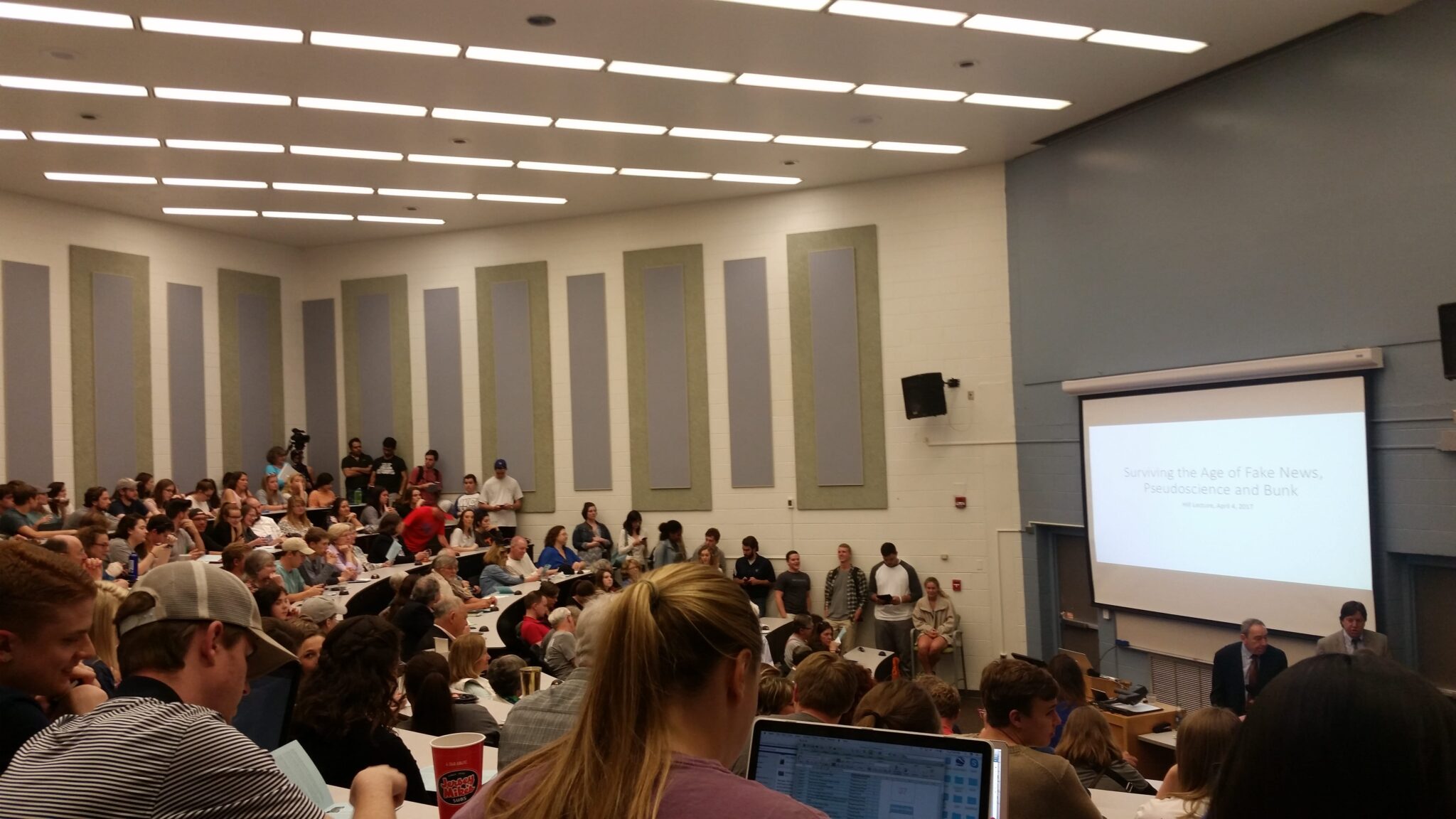Fake news: Age-old issue, new menace
Washington Post reporter offered advice on navigating the mainstream media in the wake of fake news and pseudoscience at the annual Hill Lecture Series on Tuesday, April 4.

By: Adrian Godboldt
According to Joel Achenbach, tenured Washington Post science writer, fake news is not a new issue—it’s been around since the ’90s, with some beginning even earlier.
Achenbach was invited to speak at the University of Tennessee’s annual Hill Lecture Series on Wednesday, April 4 to discuss the era of fake news and popular pseudoscience.
Addressing a standing-room-only crowd in the College of Nursing Auditorium, Achenbach provided entertaining commentary on his experience with these issues. He delved deeper into the ideologies behind the theme of misinformation.
“Where ever you have information, you’ll have misinformation,” Achenbach said. To avoid fake news, he encouraged his listeners to base their beliefs on facts rather than preconceived notions or their own conclusions.
“The internet made it easier to slide into an echo chamber,” Achenbach said. “People tend to look towards the media that confirms their view points and they attach to any little sense of credibility.”
He confirmed the notion of fake news’ pervasiveness by discussing his past research regarding alleged extraterrestrial abductions. Specifically, he pinpointed various interviews with groups of people that believe they have had alien contact. Despite little evidence, these groups cling to their beliefs.
In the search to reaffirm their beliefs, these groups tend to rely pseudoscience, or claims that appear to be scientifically proven, but actually fail to adhere to the scientific method.
Achenbach warned the audience to be cautious of titles. He reasoned that despite obvious credentials, some sources are not innately trustworthy.
Edited by McKenzie Manning
Featured image by Adrian Godboldt



